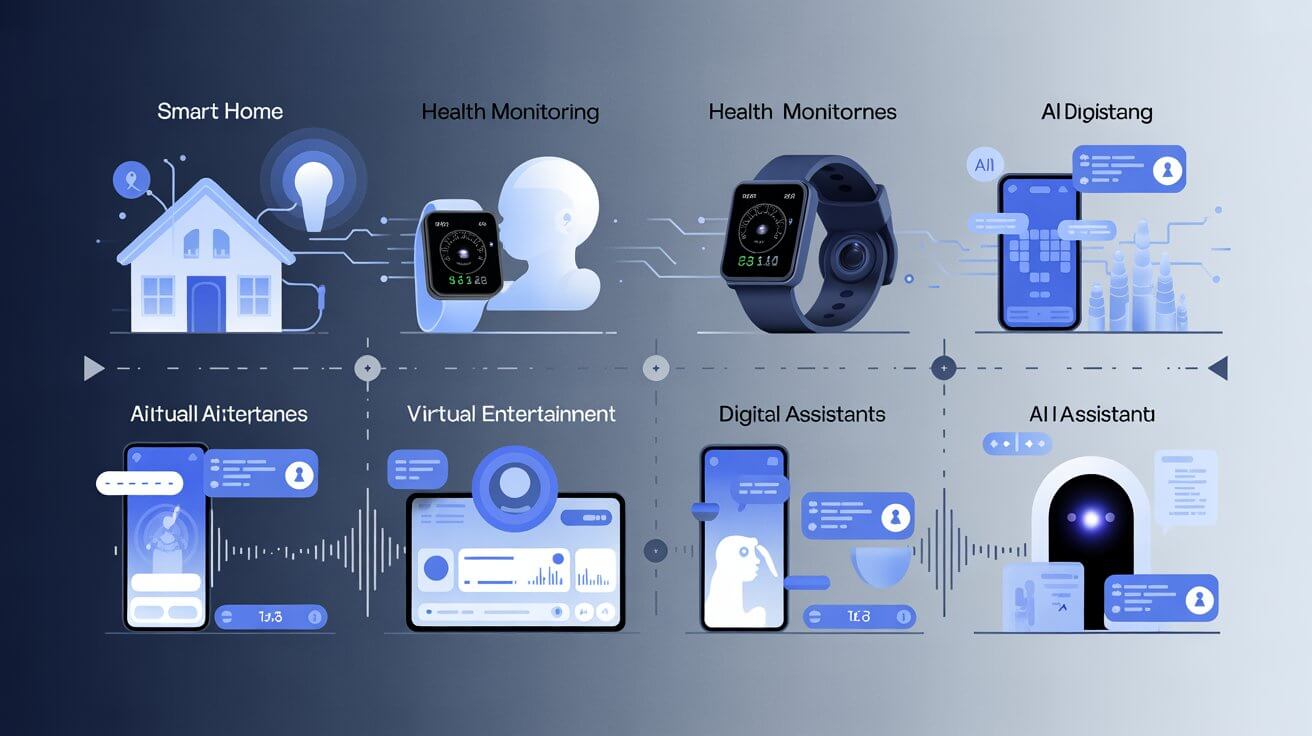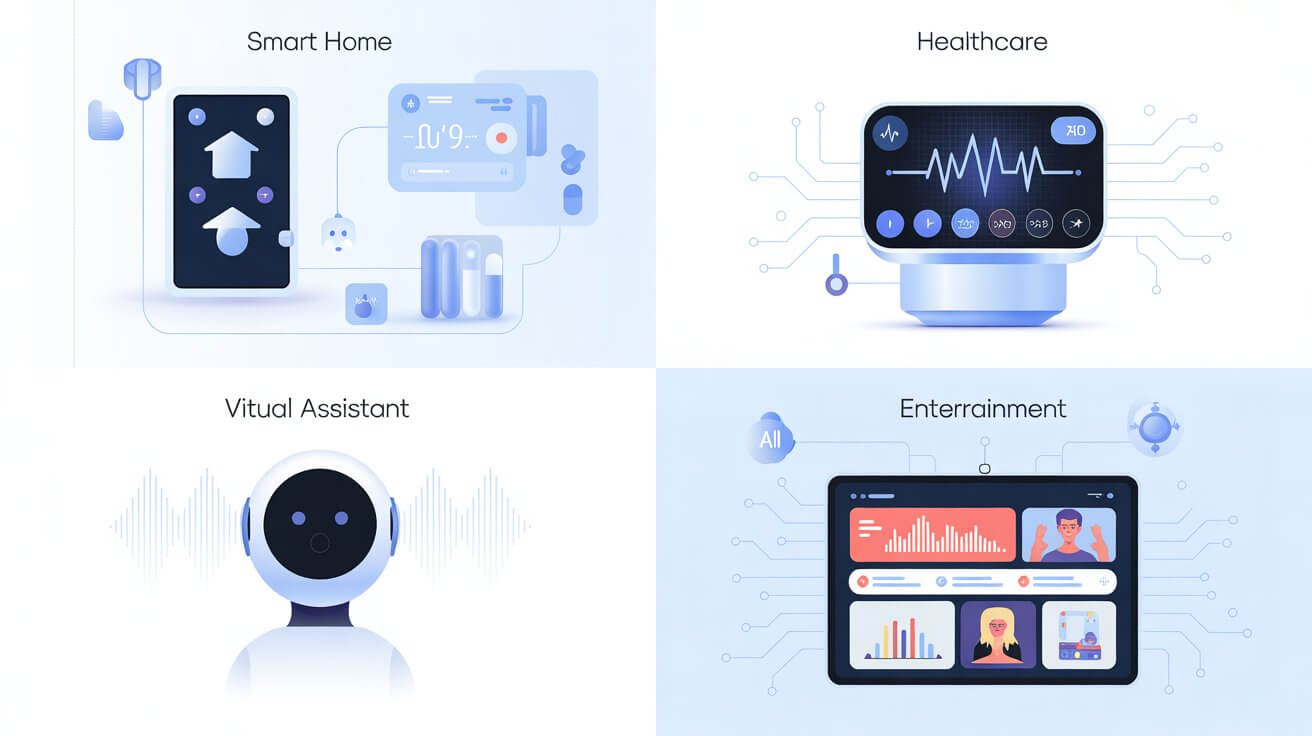Artificial Intelligence (AI) continues to revolutionize technology and daily life in 2025. From smart cities to healthcare, finance, and creative industries, AI integration is transforming processes, productivity, and human experiences. This comprehensive article explores the latest AI innovations, emerging technologies, practical applications, and future trends shaping our world.
1. AI-Powered Smart Cities
AI is central to the development of smart cities, optimizing transportation, energy, public safety, and urban planning. Machine learning algorithms analyze traffic patterns, predict maintenance needs, and enhance resource allocation. IoT devices collect data from sensors, while AI systems provide predictive analytics to improve city efficiency and sustainability.

2. AI in Healthcare and Personalized Medicine
AI applications in healthcare are advancing rapidly. Predictive analytics, diagnostic imaging, and personalized treatment plans enhance patient outcomes. AI algorithms analyze medical records, genetic data, and lifestyle information to recommend preventive care and customized therapies. Virtual health assistants and AI-powered robotic surgeries are improving precision and accessibility.
3. Autonomous Transportation
Self-driving cars, drones, and autonomous public transportation are becoming more widespread. AI systems process real-time sensor data, optimize routes, and improve safety. Urban mobility is evolving with smart traffic management, autonomous delivery services, and AI-assisted logistics, reducing congestion and increasing efficiency.
4. AI in Finance and Banking
AI is transforming finance through fraud detection, risk assessment, and automated trading. Machine learning models analyze transaction patterns to identify anomalies, assess credit risk, and optimize investment strategies. Chatbots and AI-powered customer service platforms enhance user experience, providing personalized financial advice and support.

5. AI for Creativity and Content Generation
Creative industries are leveraging AI for music composition, video editing, graphic design, and storytelling. Generative AI models produce content based on user input, offering tools for artists, designers, and writers. Collaborative AI-human workflows accelerate creative processes, increase productivity, and inspire innovation.
6. Robotics and Industrial Automation
Robots powered by AI are transforming manufacturing, logistics, and service industries. Advanced sensors, computer vision, and machine learning enable robots to perform complex tasks, improve efficiency, and reduce human error. AI-driven predictive maintenance ensures equipment reliability and reduces downtime.
7. AI in Education
AI is personalizing education through adaptive learning platforms, intelligent tutoring systems, and virtual classrooms. Students receive tailored instruction, progress tracking, and real-time feedback. AI analyzes learning patterns to optimize educational content, enhance engagement, and improve outcomes for diverse learners.
8. Natural Language Processing and Conversational AI
Advances in natural language processing (NLP) are enabling sophisticated chatbots, virtual assistants, and AI-powered communication tools. NLP algorithms understand context, sentiment, and intent, enhancing customer support, language translation, and content generation. AI conversation agents improve efficiency and engagement in both personal and business settings.

9. AI in Cybersecurity
AI enhances cybersecurity by detecting threats, analyzing patterns, and predicting vulnerabilities. Machine learning models identify anomalous behavior, malware, and network intrusions. Automated response systems reduce response times, protect sensitive data, and maintain organizational security in increasingly complex digital environments.
10. AI Ethics and Governance
Ethical considerations are critical in AI deployment. Bias mitigation, transparency, accountability, and privacy protection are essential to ensure responsible AI. Governance frameworks, ethical AI guidelines, and regulatory compliance support the safe and equitable implementation of AI technologies across sectors.
11. Edge AI and IoT Integration
Edge AI brings intelligence to devices and sensors, enabling real-time decision-making without relying on cloud processing. Integration with IoT devices improves responsiveness, reduces latency, and enhances data privacy. Smart homes, autonomous vehicles, and industrial automation benefit from edge AI solutions.
12. AI in Climate and Sustainability
AI contributes to environmental sustainability through energy optimization, climate modeling, and resource management. Predictive algorithms monitor energy consumption, reduce emissions, and guide conservation strategies. AI-assisted agriculture improves crop yields, water management, and supply chain efficiency.
13. Future Trends in AI Technology
Emerging trends include explainable AI, multimodal AI, quantum computing integration, and advanced robotics. AI-human collaboration will redefine creativity, decision-making, and problem-solving. Continued research and development will expand AI capabilities while addressing ethical and societal challenges.
14. Preparing for an AI-Driven World
Individuals and organizations must develop AI literacy, embrace technology, and adapt workflows to leverage AI effectively. Continuous learning, cross-disciplinary collaboration, and strategic planning enable stakeholders to harness AI’s full potential while navigating risks and maximizing benefits.
15. Conclusion
AI innovations in 2025 are transforming technology, industries, and daily life. From smart cities and healthcare to finance, education, and creative industries, AI integration enhances efficiency, personalization, and problem-solving. By embracing AI technologies, fostering ethical practices, and preparing for future trends, individuals and organizations can thrive in an increasingly AI-driven world.

